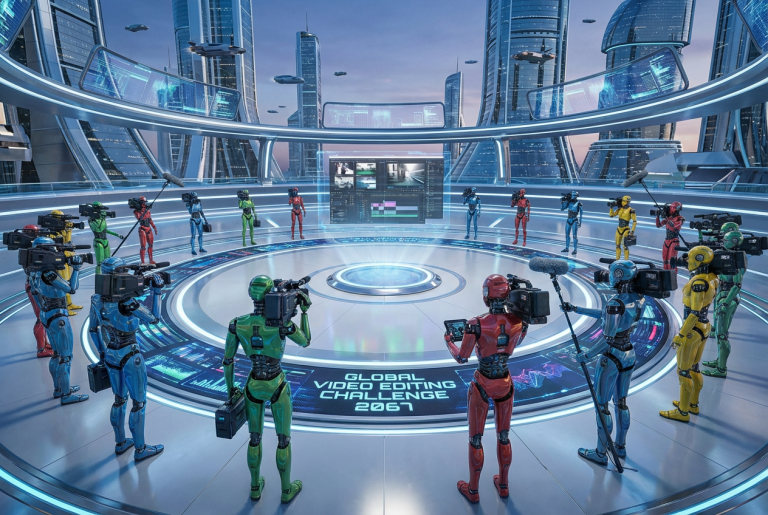AI Agent Management Skills: The New Playbook

The nature of professional work is shifting from doing tasks to directing systems. This is not a future prediction; it’s a present-day reality, proven by leading companies already automating roles with AI agents. To succeed, every team member needs a foundation in strategic thinking and critical validation, while leaders must master the new discipline of AI Agent Management Skills to build and guide a hybrid human-AI workforce.
Key Takeaways
- The Shift is Here, Not Coming: Companies like Klarna and IBM are already automating or pausing hiring for thousands of roles, proving this transformation is not hypothetical.
- The New Core Skill is “System Direction”: Your team’s value is no longer just in executing tasks, but in their ability to design, manage, and validate the work of autonomous AI systems.
- Prompt Engineering Isn’t Enough: The most critical skills are strategic, not just technical. They include Systems Thinking, Strategic Goal Setting, and Critical Output Validation.
- Leadership Has a New Mandate: Leaders must now focus on building a “co-pilot” culture, making tough ethical decisions, and redesigning workflows for human-AI collaboration.
- Action is Required: The path forward involves auditing your team’s current strategic skills, launching small AI pilot projects, and updating training and hiring criteria immediately.
The End of “Business as Usual”: The Data Doesn’t Lie
The conversation about AI’s impact on the workforce has moved from the theoretical to the tangible. This shift demands a new set of AI Agent Management Skills and is not a distant forecast but a present-day reality on the ground, confirmed by corporate actions and economic data.
Concrete examples from industry leaders show that the transition is already underway.
- Lay-offs in customer service: In early 2024, fintech company Klarna reported its AI assistant is now performing the work of 700 full-time customer service agents, handling two-thirds of all service chats with high accuracy.
- Hiring Impact: IBM announced in 2023 its plan to pause hiring for approximately 7,800 back-office roles that it believes AI will soon automate.
These individual company decisions reflect a broader economic transformation. A 2023 report from Goldman Sachs projected that generative AI could impact 300 million jobs globally. Similarly, McKinsey found that AI could automate 60-70 percent of employee time. This data frames the current situation not as a story about simple “job loss,” but as a story about a fundamental, irreversible change in how professional work is performed, creating new jobs in agentic AI.
The New Value Equation: Why “Doing the Work” Is No Longer Enough
The core conflict for businesses today is the growing gap between existing employee skills and the new requirements of an AI-powered workplace. The value of simply executing a known procedure is diminishing, while the value of strategically directing an automated system is skyrocketing.
The skills that built careers over the last thirty years were often based on proficiency with tools—being an expert in Excel, a power user of Salesforce, or a fast coder. Agentic AI subsumes many of these procedural tasks. The new valuable skill is not in using the tool, but in designing the system that tells the tool what to do. The upskilling for ai agents must focus on this strategic layer.
This perspective is explicitly championed by the leaders building this technology.
- The NVIDIA Warning: Jensen Huang, CEO of NVIDIA, put it bluntly: “People who know how to use AI will replace people who don’t.” This frames AI proficiency not as a bonus, but as a baseline for future competitiveness.
- The Microsoft Vision: Microsoft: In a June 2025 internal memo, Microsoft mandated that all of its software engineers must use GitHub Copilot. This action transformed AI assistance from an optional tool into a required component of the engineering workflow.
The Blueprint for an “Agentic-Ready” Team: Three Tiers of Essential Skills
To succeed, organizations must cultivate skills across three distinct tiers. This is the blueprint for effective AI Agent Management Skills.
These are the universal skills every professional will need to work alongside AI agents.
- Systems Thinking: The ability to see and map an entire business process from start to finish. You cannot delegate a workflow to an agent that you do not fully understand as a complete system.
- Strategic Goal Setting: The skill of translating a vague business objective (“we need more leads”) into a flawless, unambiguous, and measurable mission for an agent (“find 20 companies in this sector that meet these criteria and add them to this database”).
- Critical Validation: The non-negotiable duty of reviewing an agent’s work for accuracy, relevance, and safety. With coding AI agents now generating up to 50% of code in some projects, the human skill of code review has become more critical than ever. This same principle applies to all domains.
Hiring for ai agent roles will mean looking for two new archetypes.
- The AI Workflow Designer: This business-side role evolves beyond “prompt engineering.” This person designs, deploys, tests, and measures the ROI of entire agentic processes, acting as the bridge between business goals and agent capabilities.
- The AI System Enabler: This technical role possesses the core ai agent developer skills. They focus on building the custom tools, connecting the APIs, and managing the security infrastructure that empowers agents to do their work safely and effectively.
Managing AI teams requires a unique set of leadership skills.
- Leaders must now be adept at human-AI teaming strategy, redesigning workflows to maximize the strengths of both.
- They must also navigate difficult ethical and staffing decisions, as demonstrated by Duolingo’s CEO, Luis von Ahn, who publicly addressed the company’s decision to offboard contractors as AI capabilities grew. This kind of transparent, though challenging, leadership is becoming essential.
Your First Steps: How to Start Building These Skills Today

The goal is not for everyone to become a data scientist. It is about enabling experts in every field—marketing, finance, operations, to become experts at directing AI within their domain.
- Audit: Start by assessing your team not on their current AI knowledge, but on their foundational skills. Who are your best systems thinkers? Who excels at defining clear project goals? These are your natural candidates for leading your first agentic AI initiatives.
- Pilot: Choose one high-volume, low-risk business workflow (like lead qualification or market research summary). Form a small, cross-functional team and task them with automating it using a low-code agent platform. This project will be your most valuable real-world training ground.
- Train & Hire: Invest in training that focuses on strategic workflow design, not just prompt-writing tricks. When hiring for ai agent roles, update your job descriptions to actively seek out these foundational skills: “experience directing automated systems,” “demonstrated ability in process optimization,” and “strong systems thinking.”
The era of agentic AI requires a new playbook. By focusing on the strategic, human-centric skills of AI system design, goal setting, and critical judgment, your team can make the essential transition from task-doers to system directors. Mastering these AI Agent Management Skills is the key to succeeding in the next decade of business.




